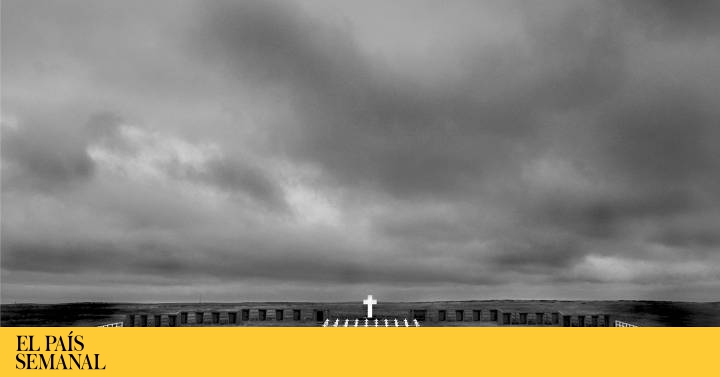The Falklands War represented a sad, tragic and regrettable miscalculation by the murderous and dying Argentine Military Junta, which believed that it was going to light the flame of national pride and stay in power by recovering a lost territory in the South Atlantic that the United Kingdom has administered since 1833. The war began on April 2, 1982, when 200 Argentine soldiers landed in the southern archipelago, and ended on June 14, with the surrender of the Government of Buenos Aires, 900 dead later (258 British and 649 Argentines).
President Leopoldo Fortunato Galtieri, who died in 2003 while waiting to be tried for crimes against humanity, thought Margaret Thatcher was going to negotiate on the fait accompli.
That the nickname of the British prime minister was the Iron Lady perhaps should have given some clue to the enlightened military coup.
His mistake represented the beginning of the end of the Military Junta and a kind of rebirth for the Malvinas, which at that time had just a thousand inhabitants, a population that has doubled, thanks to British aid.
Waking up to the news of the invasion on April 3, most Britons discovered only then that those wasteland and windswept lands (an archipelago of 760 islands, most uninhabited) were not in Scotland, but 500 kilometers from the Argentine coast and 12,000 from the metropolis.
After an intense debate in her Cabinet, with the support of the military, Thatcher decided for reasons more patriotic than geostrategic to send the British fleet and elite troops to recover the islands.
She also needed a shot at nationalism with the UK beset by economic crisis and never morally recovered from the loss of its colonial empire.
Although there has been talk for decades of possible oil bags, the value of the Malvinas (beyond wool) is now as then the patriotic pride.
As reported in the investigation carried out by
The Sunday Times
shortly after the end of the conflict, an exciting journalistic work published as a book under the title
The Malvinas War
, “the British forces that offered immediate resistance to the Argentine invasion consisted of two people: the Marines Roderick Wilcox and Leslie Milne, both Scots ”.
The large garrison on the island (68 soldiers), despite constant Argentine demands, reflects the real importance that the British gave to that territory.
The writer Jorge Luis Borges summed it up with accurate irony when asked about the war: "They are two bald men fighting for a comb."
From the moment the prime minister made the decision to take back the islands, Argentina's defeat was only a matter of time.
Two factors tipped the balance in favor of the British.
The first is that the UK had three atomic submarines, which it deployed in the South Atlantic.
One of them sank the cruiser General Belgrano on May 2, killing 323 of its 1,093 sailors.
The inability to detect, much less disable, English submarines forced the Argentine fleet to retreat into shallow waters.
The maritime fighting continued, and the Argentine aviation sank the destroyer
Sheffield
and touched the
Invincible
aircraft carrier
,
but the war was played on land.
And there, too, they had the upper hand: Argentina mobilized replacement soldiers, the vast majority of them young men in their early twenties with no experience, while London sent professional soldiers.
Argentine troops were cold and hungry in the trenches, and were systematically mistreated by their commanders.
Even so, the fighting was fierce and the resistance enormous;
but the battle of Goose Meadow, between 27 and 29 May, ended up tipping the balance in favor of the British.
The Argentine writer Rodolfo Fogwill wrote in the final week of the war the masterpiece about the conflict,
Los pichiciegos
(Periférica), which tells the story of a group of soldiers who hide in order not to fight.
The book emerged in response to the thunderous propaganda that sought to turn the conflict into a national cause amidst patriotic delusions.
"Not even the image of dozens of purple Englishmen floating frozen, which somehow made me happy, could lessen the fright caused by the media poison inoculated to my family," explained the writer, who died in 2010. The horror of reality prevailed about the lies of the Military Junta that launched a war that it could never win and paid for by adolescent soldiers sent to die from delusions of grandeur of coup-makers clinging to power.
A sad history.

